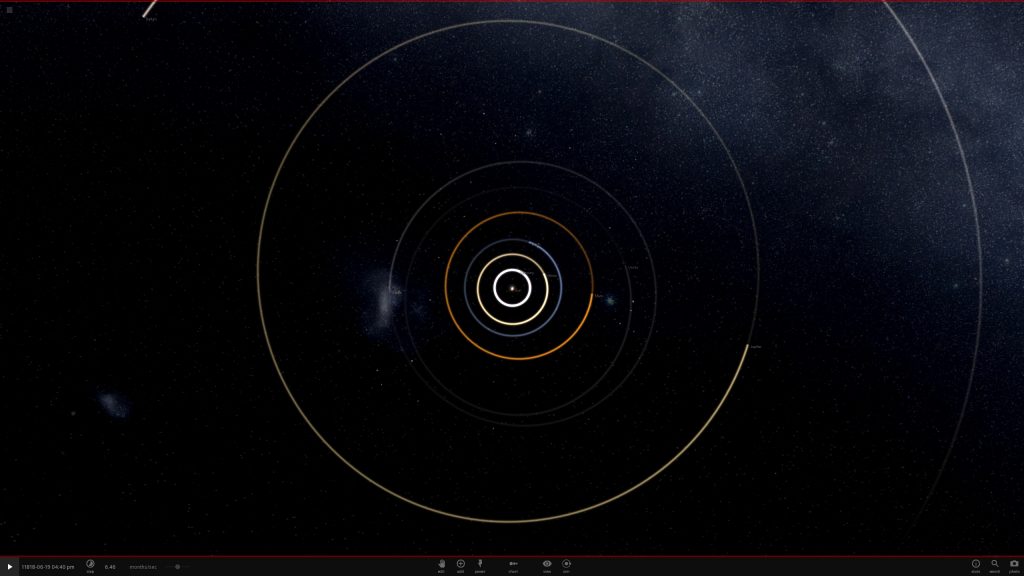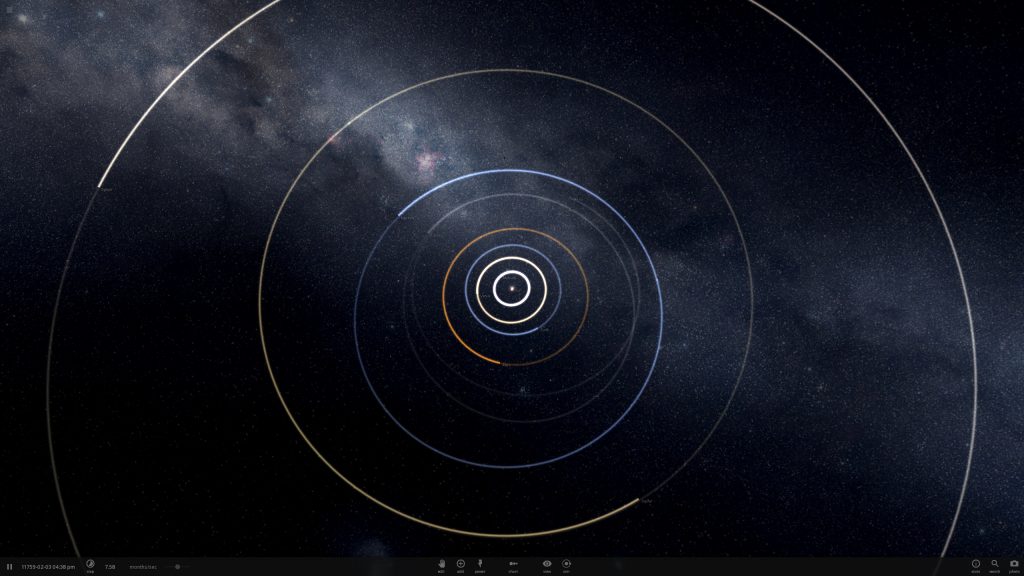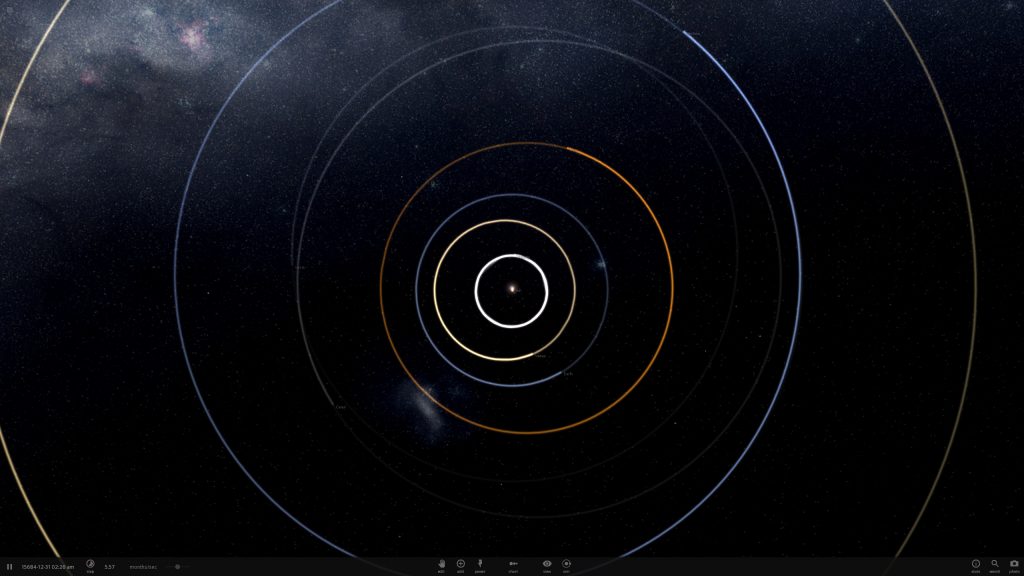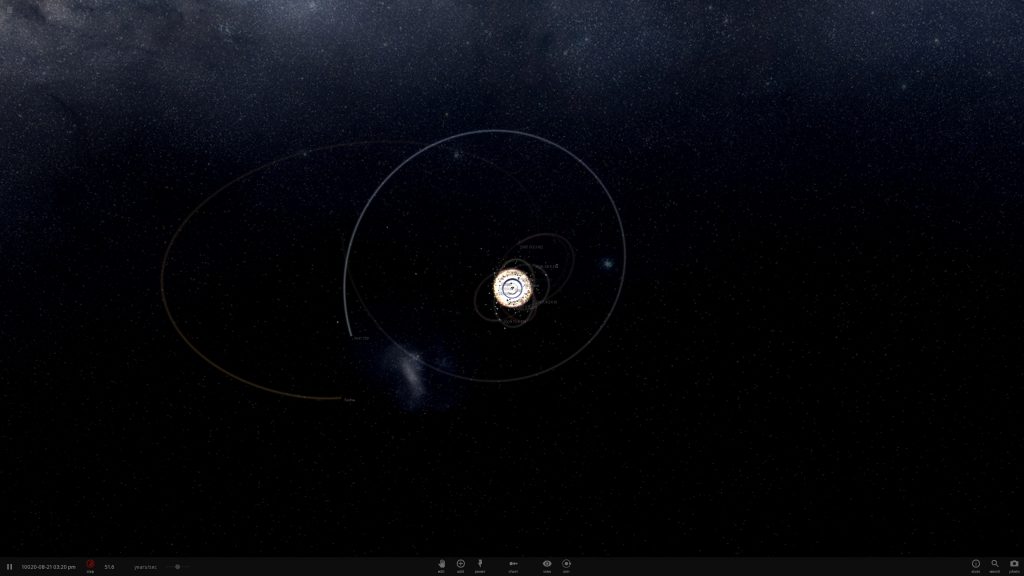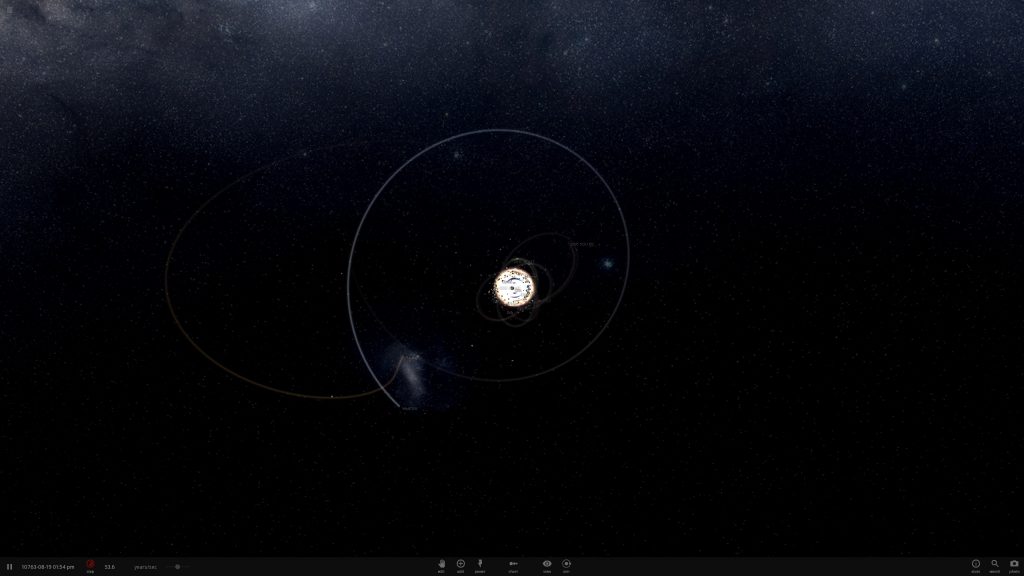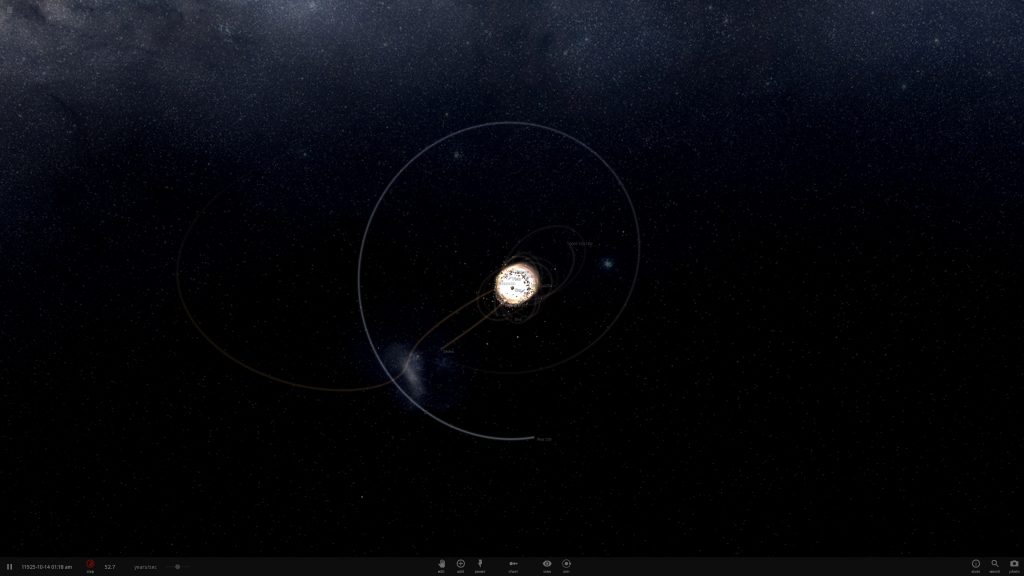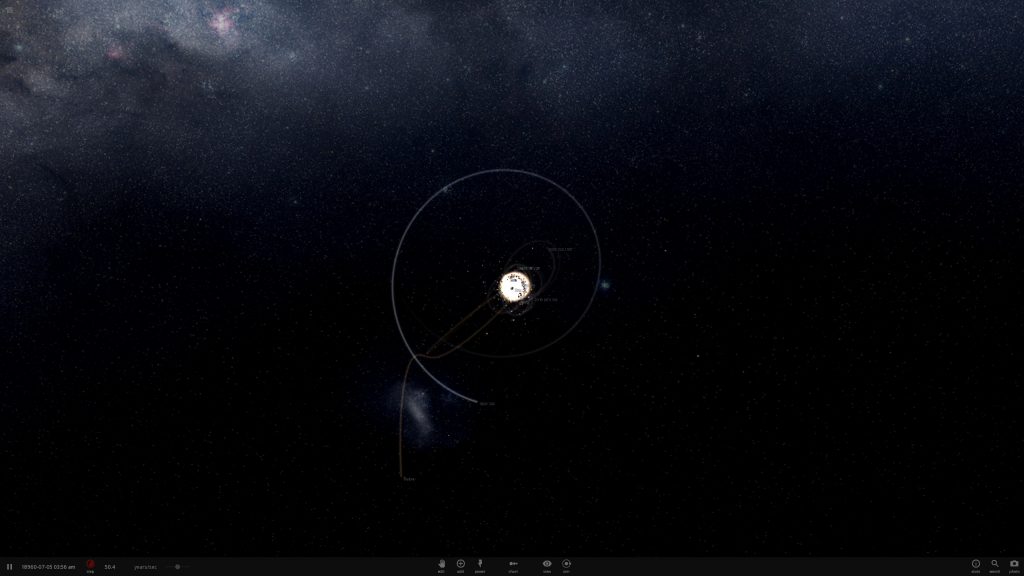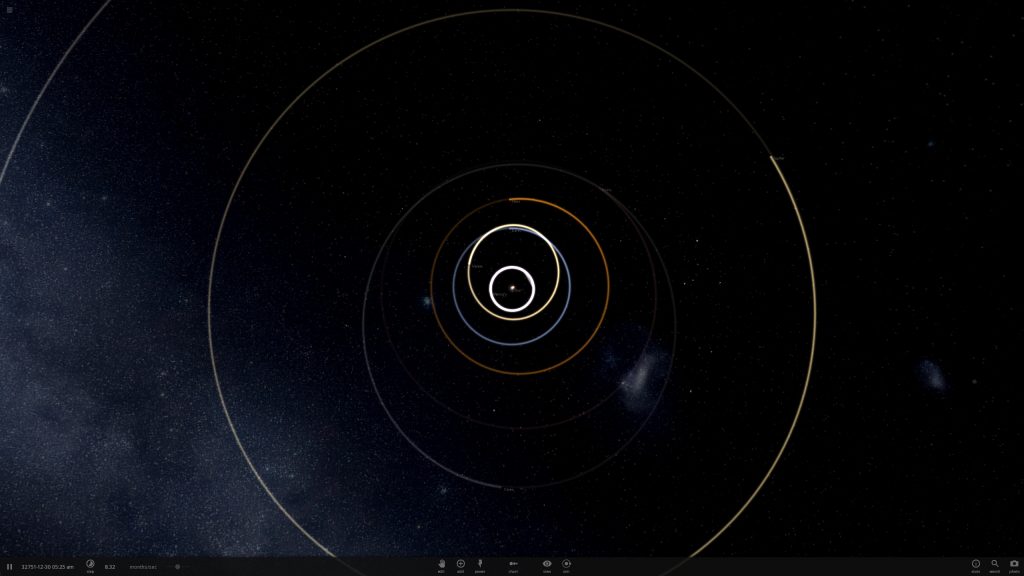You know those atheists who assume that anyone who disagrees with them is a Christian? The guys who automatically respond to any legitimate criticism of their ideas with some stupid bullshit that makes no sense whatsoever unless it is aimed at someone who believes in Adam and Eve and Noah’s ark, and they don’t actually bother to make sure that the person they are talking to even belongs to that group, nor do they change their rhetoric when they find out that it’s not the case?
Yeah. It’s as if their brain has a “case” statement with only two options and unhandled exceptions. If you agree with him, he assumes you’re an atheist. If you disagree with him, he assumes you’re a Christian. If you tell him you’re not, his brain crashes due to an unhandled exception, but he never stops talking, it’s just that nothing that comes out of his mouth makes any sense whatsoever.
So, those people assume some kind of a dichotomy between science and Christianity, where you need to choose one and are not allowed to even touch the other. I see it differently.
First of all, opposition to atheism isn’t Christianity. Opposition to atheism is any form of transcendentalist thought. Atheism is a fringe belief, espoused by fanatics who arbitrarily reject any evidence they don’t like, in a way quite similar to that of the “Moon landing hoax” or “flat Earth” believers. I know that to be true, because I once was an atheist, but unlike them, I was honest enough not to reject the evidence I couldn’t shoehorn into my favorite model. Instead, I was tortured by the evidence I couldn’t explain and this drove my thinking further. I didn’t choose the easy way of cherry-picking evidence so that my pet theories look great. I had to deal with the stuff that broke my models. This hurts, but it’s a healthy kind of pain. The fact that I chose to suffer the pain of knowing that my theory doesn’t explain the real world well makes me despise people who opt to stone themselves into oblivion by simply dismissing everything they don’t like, choosing the euphoria of imagined omniscience and omnipotence in the face of all intellectual competition, obtained merely by dismissing every piece of evidence that brings them out of their euphoric state.
The false dichotomies we have here are creationism vs. evolution, science vs. transcendentalism, chaos and chance vs. the will of God.
Honestly, if the atheists who kidnap science and hold it hostage weren’t the crazy cult that they are, those issues would never arise. I don’t actually see the reason why those viewpoints would even be contrasted in the first place. It would be normal for science to be aware of the limitations of its scope and not to extend its conclusions beyond that, and it would also be normal for religion to listen to what science has to report on the world, this being a form of insight into both their scripture and their understanding of reality. For instance, the fact that we now know that there were ice ages not that long ago, and that this ice melted away for the most part, should be taken as a confirmation of the general concept of the story about Noah. Mankind was almost swept away by the meltwater, but managed to survive, albeit with losses, and rebuild its civilizations. Of course the story itself is a myth; it was probably told, retold, changed and adapted for thousands of years and throughout dozens of successive civilizations, until only traces of the actual story remained, but something remained, and it’s our only semi-historic recollection of the onset of the current glacial minimum. It’s probably the oldest memory of mankind. And why is it a false dichotomy, because “science” for the most part argued against the story by pointing out that it would be unlikely for the situation on Earth to change radically and it’s more likely to assume that things just were this way forever. Also, the scientists pointed out that it would be impossible for all that water just to appear “out of nowhere”. Really? Are you fucking kidding me? But yes, the science up until recently didn’t know shit about the ice ages and the Bible was actually the better version of history, for all its flaws. At least it remembered there being a big flood. That’s what I meant by saying that religion should listen carefully at what science has to say and how it casts new light onto their scripture, because science can tell them what that flood was: the ice age ended and the ice melted. It happened suddenly and violently, according to newest findings, and if we use our imagination to visualize what must have happened to the humans who lived at that time, it becomes obvious that it was a memorable event for the survivors, and a mystery that required some explanation. People tried to make sense of it – oh, God got angry at humans because they grew wicked and corrupt, and he regretted ever creating them and decided to drown them all in water, save few who for some reason were more acceptable to him. Will that happen again? No, God decided not to repeat that. So, no fear.
So, obviously, I can appreciate that the Bible got the main concept right, but that science is the way of gradually getting the more complete version of the story. Why is that so difficult for some people to accept? The atheists hate the Bible so much they refuse to accept that it could have a better version of the story than the early science, and the religious Christians refuse to interpret their scripture as anything but the literal truth. From my perspective, that marginalizes both groups and makes them unfit to accept the truth.
The next issue is the age of the Universe. Science dates the Earth to some 4.5 BY, and the Universe to around 14 BY. The fundamentalist Christians who derive their ideas from the Bible put those numbers between 6 and 10 KY.
The thing is, science can’t actually tell us jack shit about the actual age of the Universe, because it simply assumes that the Universe is real (as I would say, reality level 0), and that by observing the physical phenomena such as the Doppler effect on the increasingly distant cosmic objects and the radioactive decay of isotopes, we can find out how long it took for the rocks on Earth to reach their current isotope composition, how long it took for the stars of high metallicity to form and evolve, and basically we can turn the mental clock backwards and calculate a point in time where all the matter in the Universe must have originated from one point. The problem with this logic is that if this entire Universe is a simulation, similar in kind but more sophisticated in implementation than our best videogames, we can’t really know for how long the thing existed before we plugged in. For all we know, it could have really been turned on a few kiloyears ago when the first souls accepted Satan’s offer and entered the simulation. The simulation could have appeared exactly like a Universe that was 13 BY old, with population 1 stars, isotope composition typical for a 4.5 BY old planet, and with fossil remnants of extinct plants and animals, but we have that in modern video games. In fact, I recently finished playing Witcher 3, and in the game I actually traveled between several parallel worlds with different histories and lifeforms. Tell me, how old are those worlds? They appear to have at least thousands of years of history embedded in them, ancient ruins, all kinds of life that appears to have naturally evolved, artifacts of erosion, some life that plane-shifted during the conjunction of the spheres, but really, how old is the world in Witcher 3? Thousands of years, millions or billions of years? Or did it just come into existence in 2015 and it’s a completely “young Earth”?
“Young Earth” is not a stupid theory at all. It’s only stupid if you assume that this world is the reality, and this assumption has less evidence for it than against it, since people who are reanimated from near-death consistently report waking up in a higher-reality world. If that is a higher-reality world, and this is a lower-reality world, there’s another word for “lower reality”. It’s “illusion”. And if it’s an illusion, it’s obvious that it can be as old as the memories of the first observer who joined with it. Before that point, its entire “history” could have been just something that some computer was left to iterate until it came up with a law-set that produces the desired conditions for the simulation, which explains the incredibly tightly fine-tuned fundamental constants. The explanation that someone let the computer run the simulation and tweaked the parameters until it got the desired results is actually the most parsimonic one, because everything else requires such crazy leaps of imagination it all becomes ridiculous. There are some aspects of this Universe and Earth in particular that look so incredibly unlikely, and their absence would result in us not be here to talk about it, the simulation theory actually became my favorite a few years ago, because the probabilities within the alternative explanations are utterly insane. I talked about this a bit in other articles, but mostly in Croatian so I’ll probably go through it again in English at some point, but I digress.
The craziest thing is, science can’t disprove any of it. Science can tell you a great deal about the ratio of isotopes of Potassium and Argon in rocks, but it can’t tell you whether the Universe itself is real or simulated. Paradoxically, the only way to tell is to see if one can plug in and out, and if so, ask them what happened. That’s exactly what happens in case of saints who had mystical experiences of unplugging from the simulation and into reality of higher order, and in case of dead people who were medically resurrected. None of what they tell us makes any sense if we assume that this world is the reality, level zero. However, if we accept the possibility of it all being an artifact that runs on some super-advanced computer, such as we ourselves could conceivably make in a few decades or centuries, it all makes perfect sense. It’s not weird, nor contradictory, nor impossible. In fact, it’s what you would expect to happen. The miracles, too, start making sense, because if it’s a simulation, and someone can get in touch with the higher reality, it’s conceivable that he could tweak the simulation, or ask someone in the higher reality, with the adequate level of access, to tweak the simulation. Pause gameplay. Lookup character Lazarus, timestamp t–6 hours. Delete current state of the character, insert snapshot in its place, re-interface soul with the playable character. Resume gameplay. Voila, raising the dead. Walking on water, even simpler. Detect water surface position, modify substance behavior to allow playable character to walk on it. Voila, miracle, walking on water. And the trick is, Jesus actually said that’s how he did it. He didn’t say he’s doing it, he said he asked God to do it for him.
If we look at it this way, some religions suddenly make much more sense than all the science in the world, because science can explain how the simulation works, and that’s not very useful. It’s much more useful to know the purpose of the simulation, the purpose of our presence within it, and the conditions under which we can leave. And about those things science can’t tell us jack shit. The only way to learn those things is to ask someone who is in the position to know them. And that’s not called science, it’s called revelation.
And yeah, talking snake. Stupid story, eh? But if you combine that with another narrative from the same place and from the similar historical period, that of the Yazidi sect, and it’s very likely that they are both surviving fragments of something, and you realize that the “Peacock angel” who is basically the person in charge of this world, but is a very questionable individual, might very well be the “talking snake” from the garden of Eden. The story then might sound like this: the “garden of Eden” isn’t really in this world, it’s in the world nearly-dead people wake up to when they pass through a “tunnel” between realities, basically unplugging from the simulation. The “snake”, a disreputable dodgy character, tempted the souls and offered them a better way of spiritually evolving, to “be like Gods”, to know the difference between good and evil. There was no “apple”, the fruit from the tree of knowledge of good and evil is some kind of a metaphor for some kind of an experience, and let me guess what that might be: plugging into some kind of a virtual reality, very immersive, with very strange rules. This place. And then God saw what happened, and declared that we are oh so fucked now. God didn’t throw us out of Eden – we opted out of it by listening to the “Peacock angel”, the “snake”. And the role of Jesus makes sense from that perspective, too – God figured out a way to redeem those who were trapped here, because the ruleset is such that you apparently can’t live here without breaking some rule or another that puts you more deeply into “Peacock angel’s” power. What Jesus might have done is bought a deep level of privilege on the system with his sacrifice, and this allows him to reset all obligations to the system-owner, of all souls who accept his authority over themselves. Basically, yes, you can say that you accept salvation by the sacrifice of Christ, and the otherwise untouchable infinite loop of obligations to the world and its owner ends.
So none of it is even remotely stupid if you look at it this way. In fact, looking at it this way science seems kinda silly, like those geeks who study lightsaber combat forms from Star Wars, and can tell you all about the differences between Ataru and Djem-So, or people who can tell you the entire genealogy of Numenorean kings from Ar-Pharazôn to Aragorn II Elessar. Yes, it can all be studied, and scientific methodology can be consistently applied to all of it, but that doesn’t mean any of it is real, in the ultimate meaning of it not existing only in some book, movie, someone’s head or a computer.

